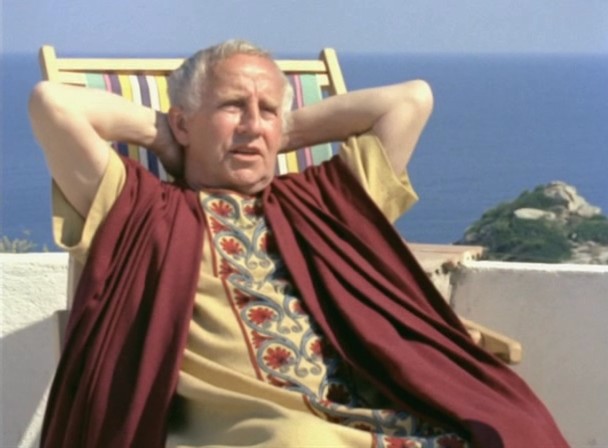No. 17 AFW+NFSA - Final Cinema: Jean-Marie Straub and Danièle Huillet
*Please note that this will be the final Screening at AFW Goodtime Studios
Thursday 25th February – 7.30pm start
History Lessons (1972)
Program:
The Bridegroom, the Comedienne, and the Pimp (Straub/Huillet) 1968, 16mm, B&W, 24 mins
A mysterious, structuralist burlesque and, following Godard's "fin du cinéma," a suggestion of a profound new beginning for the medium. Film history is the subject, and 25 minutes is all Jean-Marie Straub and Danièle Huillet need -- the hieroglyphs are graffiti on a wall ("Stupid old Germany"), an extended tracking shot from right to left constitutes the Dark Ages, the camera just recording the sidewalk of a Munich neighborhood past cars, gas stations, storefronts, and the occasional hooker, with Bach eventually filling the soundtrack. Vérité tawdriness gives way to theatricalized stasis, the camera now parked on the first row, at around a 30° angle, for a performance of Rainer Werner Fassbinder's Anti-Theater abbreviation of Bruckner's Sickness of Youth. Fassbinder slouches tersely, Hanna Schygulla and Lilith Ungerer are the zonked muses, the performers are dwarfed by the stage -- a bald proscenium, with the entrance a jumbo door out of a dollhouse, Mao scrawled in the back, conversations boiled to abrupt declarations of theme ("The only way out: To get married. Deliberate social integration"). Sudden Hollywood action-scene editing, a protracted wedding, then pastoral vistas as another (or is it?) narrative is parachuted in: Straub and Huillet sample and mould raw material after raw material, each element emphasized for its uniqueness and woven into the larger fabric of radicalized progression. The interracial newlyweds (Ungerer and Jimmy Powell) drive home to find Fassbinder, her pimp, waiting inside to take her back to the streets; she disarms and coolly shoots him before reciting lines from St. John of the Cross to the idyllic nature outside her window. Filmic subversion can prompt political revolution, and transcendence -- film to Straub-Huillet remains an instrument of change and a tool of contemplation, their heightened, final track both caps the medium's baptism and crystallizes its purposes, sorting light from darkness. --- Fernando F. Croce
Introduction to an Accompaniment to a Cinematic Scene by Arnold Schönberg (Straub/Huillet) 1972, 16mm, Colour, 17 mins
This film was commissioned for screening as a short documentary in a late night television program on new experimental music and film. It is interventionist in its approach to the relationships between music, politics and the conventions of television documentary. Two letters written by Schoenberg to Kandinsky on the subject of anti-Semitism are presented in conjunction with materials of very different origin - a quotation from Brecht, some news and archival footage and a newspaper report. Straub and Huillet locate their film at the point where Schoenberg's hostility to politics contradicts his Jewishness and his revolutionary aesthetics and music. The film's materialist construction challenges the normative idealist approach of such documentaries.
Geschichtsunterricht = History Lessons (Straub/Huillet) 1972, 16mm, Colour, 85 mins
Four interviews with contemporaries of Caesar's (a banker, a former soldier, a lawyer and a writer) are conducted by a young contemporary German replacing Brecht's narrator, a contemporary of Caesar's. The interviews place Caesar's exploits in direct perspective undermining his heroic, legendary image. They are linked by long takes filmed from a car being driven through the old quarter of Rome. Straub and Huillet have no desire to transport the viewer into an illusion of the past. This is distanciated history through a materialist play on codes of acting and cinematic construction in which no one language dominates the other. Straub and Huillet, like Brecht's unfinished novel upon which the film is based, invite you to establish meaning from the plurality of takes.

